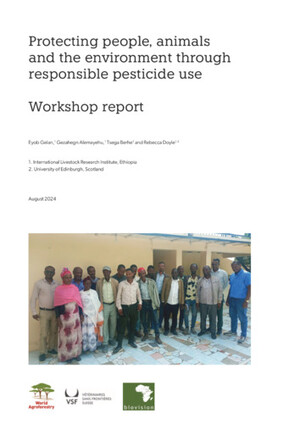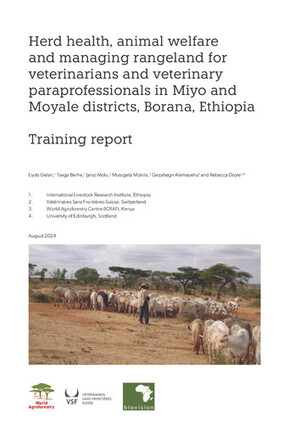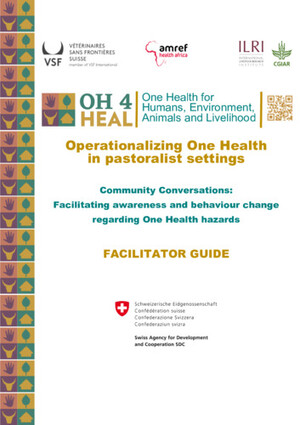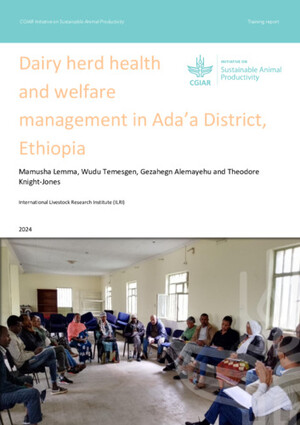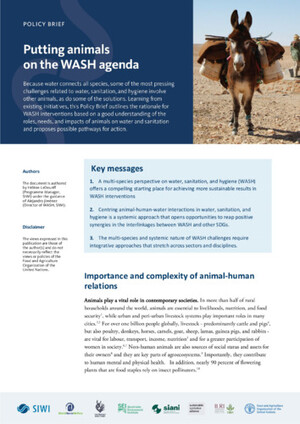
Acaricidal efficacy evaluation of amitraz and diazinon against Amblyomma variegatum tick species in Waghimra zone, northern Ethiopia
Abstract
Ticks pose a substantial economic burden associated with production loss and treatment costs globally. Ethiopia has tremendous livestock resources, but its productivity is hindered by various animal health challenges in which ticks are the top priority, with a limited response to acaricidal treatments. Hence, we designed an acaricidal efficacy trial for the top commercially available Chemicals (amitraz and diazinon) to examine their efficacy against the widely distributed tick species (Amblyoma variegatum). Ticks were collected from animals admitted to veterinary clinics with no history of treatment with acaricides. Adult Immersion Technique (AIT) was employed to detect acaricidal resistance, and the mean percent control and antiparasitic efficacy were used to estimate tick susceptibility with a completely randomized laboratory-based trial (CRT). The mean weights of eggs laid by ticks subjected to amitraz and diazinon indicated that amitraz had a better egg-laying-inhibition effect than diazinon. The mean control percentages of amitraz and diazinon were 92.8 ± 5.6% and 69.7 ± 3.1%, respectively, with a highly significant difference (P-value = 0.00). The antiparasitic efficacy of the two drugs was 57.5 ± 0.96 and 37.5% ± 0.96 for amitraz and diazinon, respectively, which revealed that amitraz was statistically better than diazinon in killing adult ticks (P-value =0.026). In general, ticks treated with diazinon showed evidence of resistance development, and amitraz is relatively the most effective acaricide; we recommend its use in the study area and other locations with similar settings.
Citation
Tibebu, A. and Assefa, A. 2023. Acaricidal efficacy evaluation of amitraz and diazinon against Amblyomma variegatum tick species in Waghimra zone, northern Ethiopia. Veterinary Parasitology: Regional Studies and Reports 42: 100885.





